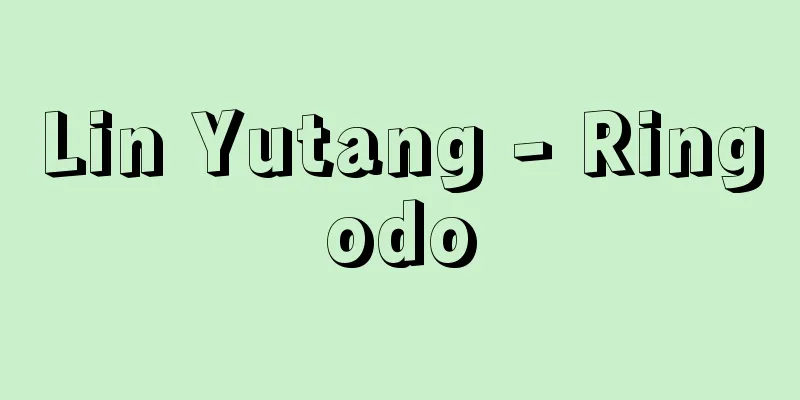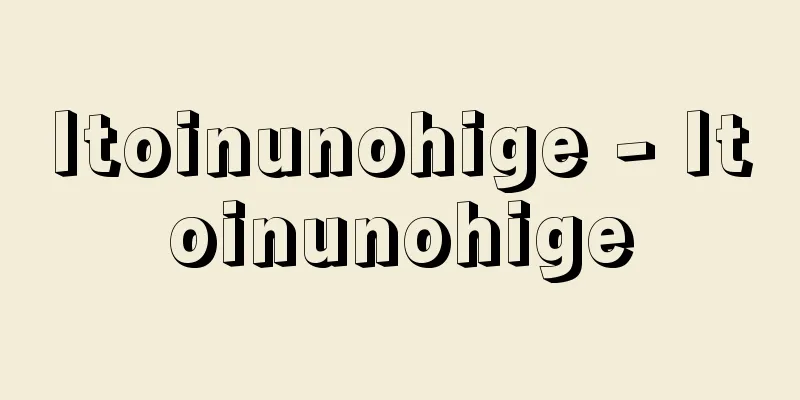Lin Yutang - Ringodo

|
Chinese author and linguist. He was originally called Lin Hele, and later changed his name to Yutang and then to Yutang. He was born in Longxi, Fujian Province. After graduating from St. John's University in Shanghai, he studied in the United States and Germany, and studied linguistics at Harvard and the University of Leipzig, where he received a doctorate in philosophy. After returning to China in 1923, he became a professor of English at Beijing University, and published many prose pieces and papers in the journal "Yusi" by Lu Xun and others. In 1926, he became a professor at Xiamen University, and served as a diplomatic secretary at the Foreign Ministry of the Wuhan government during the Northern Expedition. In the 1930s, he edited magazines such as "The Analects of Confucius," "The World of Man," and "The Universe Wind," and advocated short pieces of "leisure and humor." At the same time, he took the position of a liberal intellectual who kept a certain distance from the left wing, such as participating in the League for the Protection of Civil Rights with Cai Yuanpei and others. He went to America in 1936, and published a series of works explaining Chinese civilization to Westerners, including "My Land, My People" (1935), which he published the previous year. His novels "A Good Day in Beijing" (1939) and "Leaves in the Storm" (1941), which he published during the war of resistance against Japan, also strongly appealed to the West about the significance of the war. Ideologically, he was most radical during his time in Beijing and Wuhan, but later gradually became more conservative. He died in Hong Kong on March 26, 1976. He is a prolific writer, and in addition to the above, he compiled the poetry collection "Cut and Slash" (1928) from his time in Beijing, and the critique collection "The Great Rough Collection" (1934) from the 1930s. In his later years, he also compiled the "Contemporary Chinese-English Dictionary." [Noboru Maruyama August 21, 2018] "A Good Day in Beijing, Volumes 1 and 2, translated by Ryoichi Sato (1972, Fuyo Shobo)" [Reference item] | |Source: Shogakukan Encyclopedia Nipponica About Encyclopedia Nipponica Information | Legend |
|
中国の作家、言語学者。初め林和楽といい、のち玉堂、さらに語堂と改名。福建省竜渓出身。上海(シャンハイ)の聖ジョーンズ大学卒業後、アメリカ、ドイツに留学、ハーバード、ライプツィヒ大学で言語学を学び、哲学博士の学位を得た。1923年帰国後、北京(ペキン)大学英文科教授となり、一方魯迅(ろじん)らの『語絲(ごし)』に散文、論文多数を発表した。1926年厦門(アモイ)大学教授を経て、北伐期には武漢政府外交部で外交秘書を務めた。1930年代には『論語』『人間世』『宇宙風』などの雑誌を編集して「閑適とユーモア」の小品文を提唱、一方、蔡元培(さいげんばい)らの民権保障同盟に参加するなど、左翼とはある距離を置いたリベラル知識人の立場をとった。1936年アメリカに渡り、その前年アメリカで出版した『わが国土・わが国民』(1935)をはじめ、中国文明を欧米人に説明する一連の仕事をした。抗日戦中に発表した小説『北京好日(こうじつ)』(1939)、『嵐(あらし)の中の木の葉』(1941)も、抗日戦の意義を欧米に訴える性格が強い。思想的には北京、武漢時代にもっとも急進的だったが、のちしだいに保守的色彩を強めた。1976年3月26日香港(ホンコン)で死去。著作は多数に上るが、前記のほか、北京時代の詩文集『剪払集(せんふつしゅう)』(1928)、1930年代の評論集『大荒集』(1934)などがあり、また晩年には『当代漢英詞典』の編纂(へんさん)もしている。 [丸山 昇 2018年8月21日] 『佐藤亮一訳『北京好日』上下(1972・芙蓉書房)』 [参照項目] | |出典 小学館 日本大百科全書(ニッポニカ)日本大百科全書(ニッポニカ)について 情報 | 凡例 |
Recommend
Tsuneemon Murano
Year of death: July 30, 1927 Year of birth: July 2...
Aginergy - Aginergy
...writing and using chopsticks are particularly ...
Gargiulo, D.
… Naples also produced pioneering painters and wo...
subchela
…In horseshoe crabs, the first leg (chelicera) an...
Catalina Monastery - Catalina Monastery
A monastery located at the northern foot of Mount ...
Foam glass - awagarasu (English spelling) foam glass
Glass containing countless tiny independent bubbl...
Mittelgebirge
…Austria Switzerland [Nature] [Topography, Geolog...
Takenori Kiyohara
Date of birth and death unknown. A military comma...
Aeroallergens
...The nasal mucosa becomes edematously swollen b...
Oranda-ryu
...In the spring of the same year, over 12 days a...
Social relations (English spelling) soziale Beziehung German
It refers to the relationships between people tha...
Spanish-American War
A war broke out between the United States and Spai...
Twins Mountain - Twins
A conical volcano that rises in the center of the ...
Beatus
…It is true that in this period, the weak and uns...
Crossing - Kouhai (English spelling)
The act of pollination or fertilization between t...


![Shinshiro [city] - Shinshiro](/upload/images/67cbeb48bbc44.webp)

![Kesennuma [city] - Kesennuma](/upload/images/67cb7a6d9448b.webp)

![Yunishigawa [Hot Spring] - Yunishigawa](/upload/images/67cd148591637.webp)


